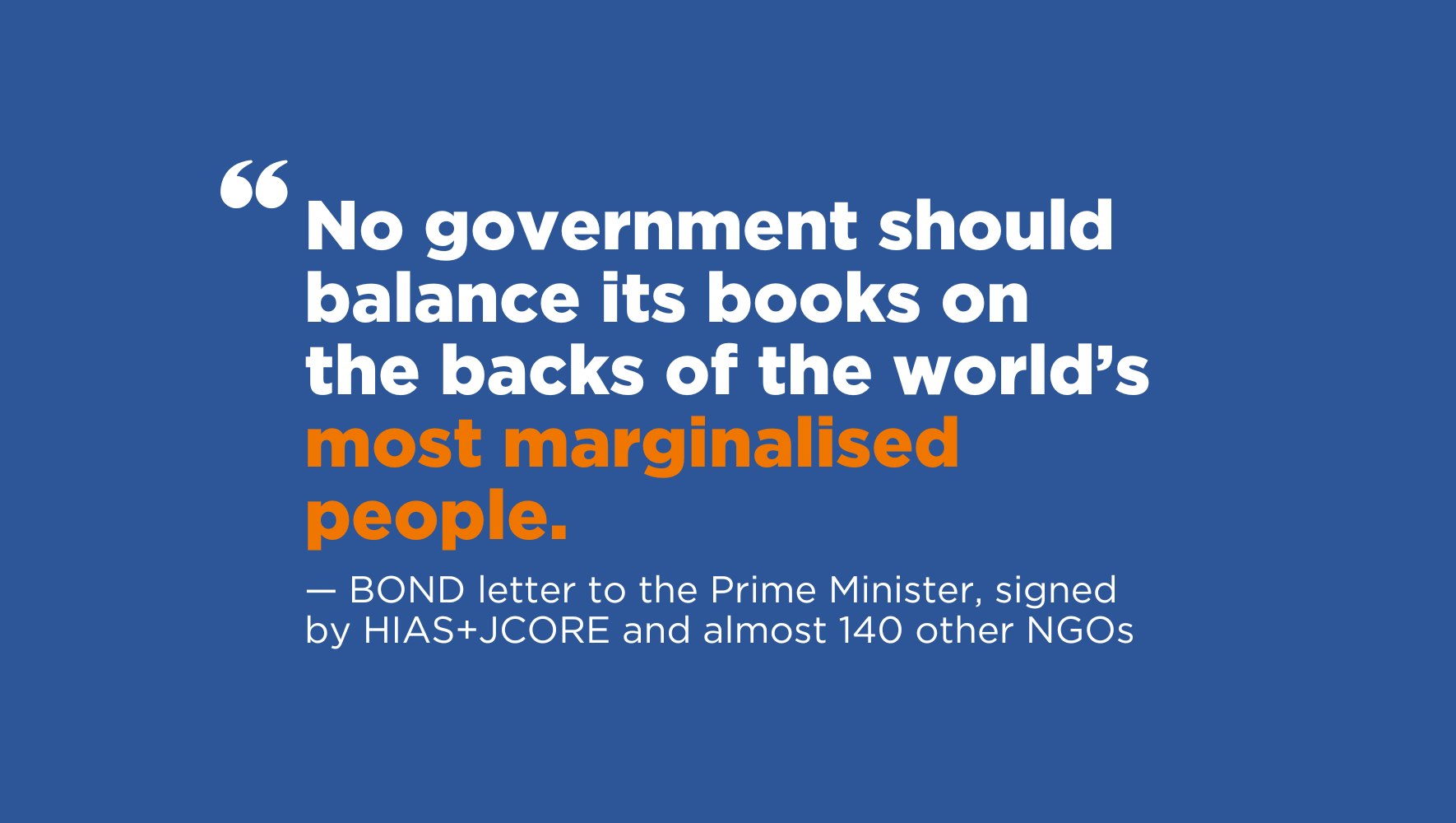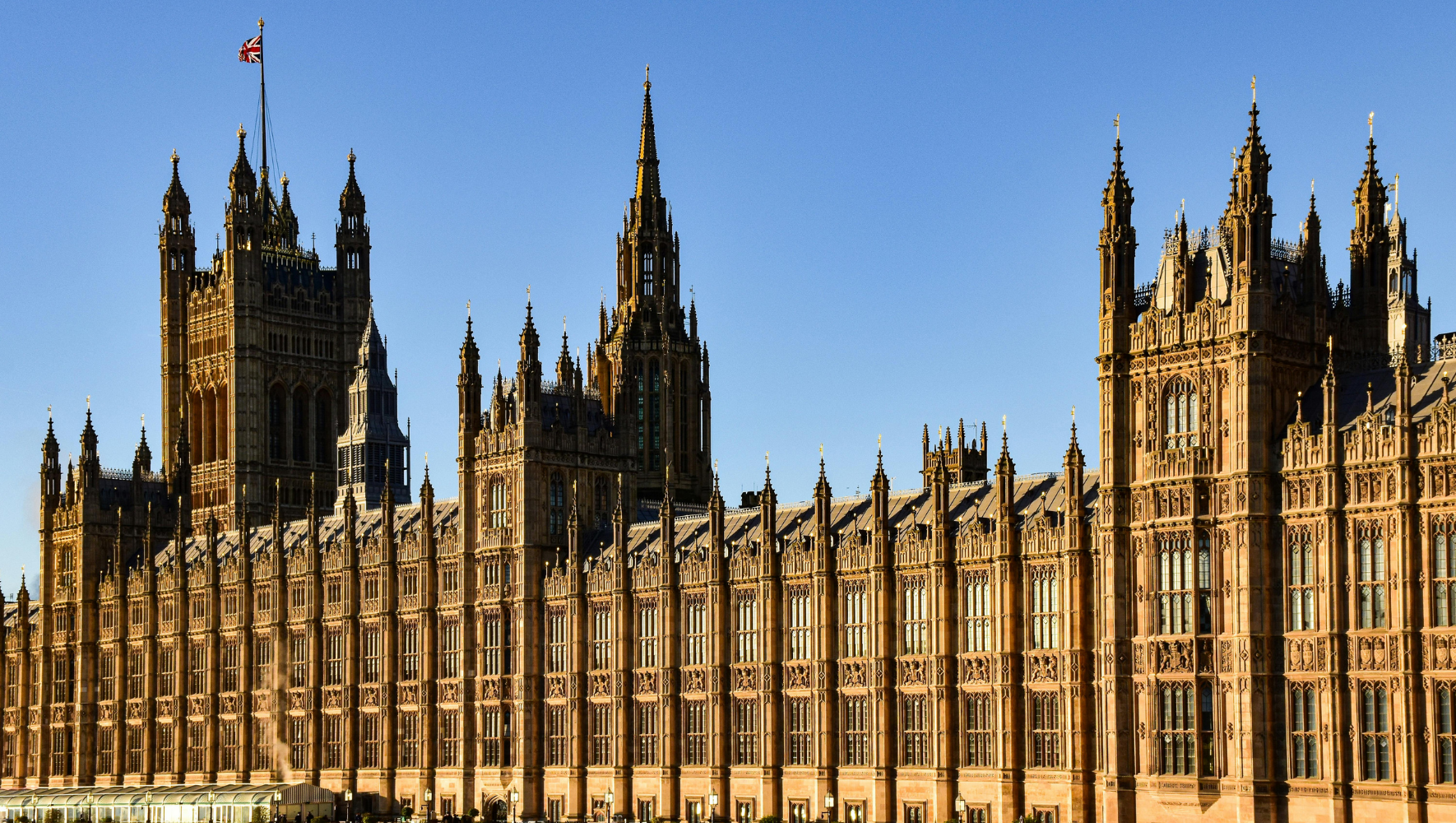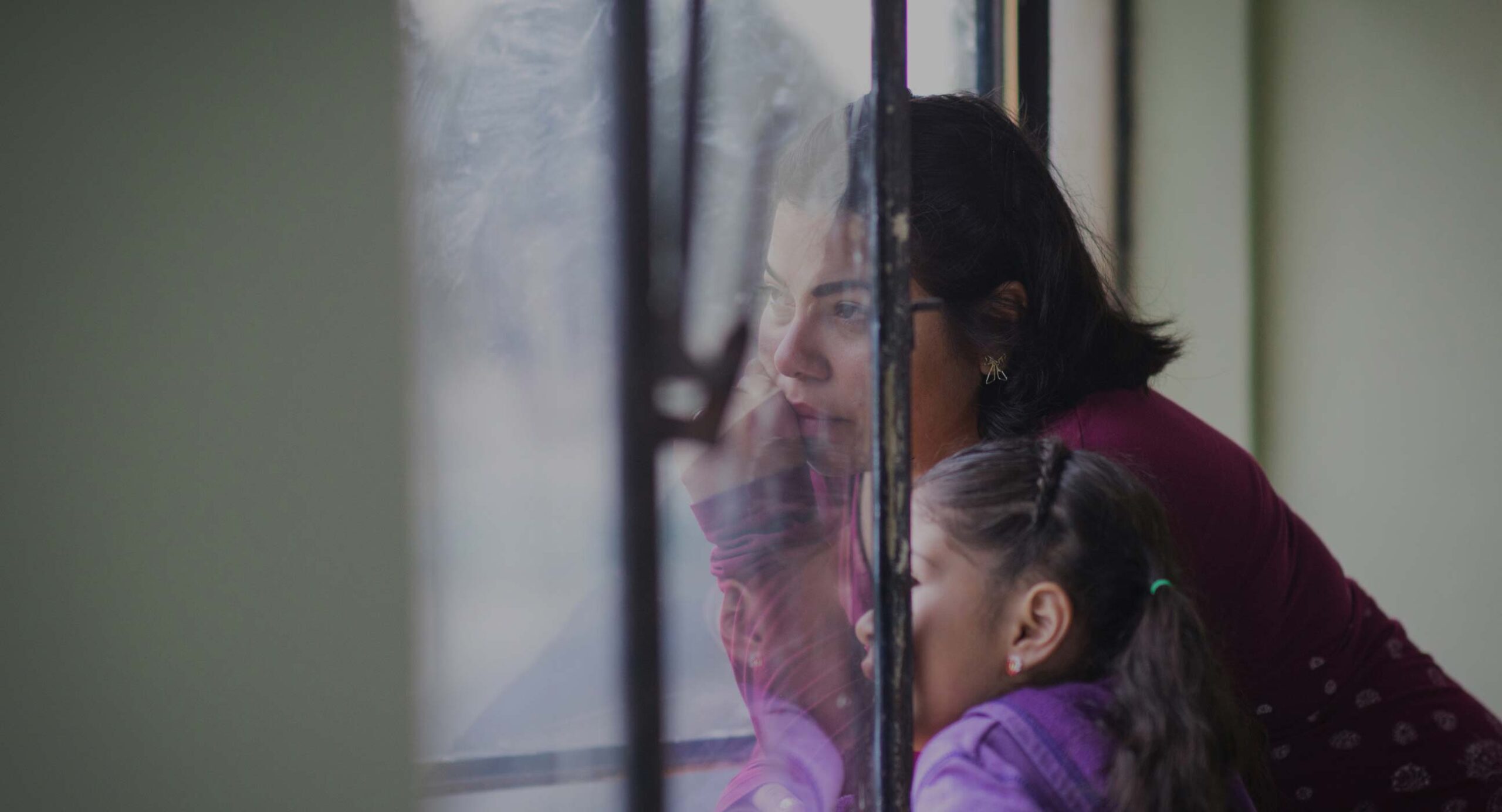
HIAS+JCORE’s Executive Director David Mason has joined almost 140 UK NGO directors in signing a letter urging the UK government to rethink its recent international aid cut. Coordinated by Bond, the UK international development network, the letter also calls for the Prime Minister and Chancellor to make a statement to Parliament on the cut. Signatories included the heads of Christian Aid, Islamic Relief, and CAFOD.
The leaders state that they “are appalled by the recent announcement that UK aid will be cut to pay for defence spending”, and express alarm that “the UK is now following in the US’s footsteps and has accepted the false choice of cutting the already diminished UK aid to fund defence.” Highlighting the impact that the cut will have on both the UK’s development and humanitarian work and global reputation, they go on to state that “no government should balance its books on the backs of the world’s most marginalised people.”
While acknowledging that “the safety and security of the people of Britain should always be a priority of the government”, the letter asserts that using the UK’s aid budget to do so is morally and strategically wrong, stressing that aid spending “builds peace and prevents conflict and instability”.
It concludes with a call for the Government to “honour its promise to turn the page on international development and once again become a reliable partner on the world stage”, affirming that “anything less will cost lives and significantly damage our long-term interests.”
This intervention follows an announcement last Tuesday (25 February) that the UK’s aid budget will fall from its current level, 0.5% of gross national income, to just 0.3% in 2027. Research has subsequently found that this could take the UK’s contribution to its lowest level since records began.
Responding to the news last week (February 27), HIAS+JCORE’s Executive Director David Mason said:
“We share the deep disappointment and concern of BOND and many others towards the UK government’s aid budget cut.
Quite simply, this is the wrong decision, at the wrong time. It will make some of the world’s most desperate people – including refugees and displaced people – even more vulnerable. And it risks leaving the UK more, not less, insecure.
As the new United States administration steps away from its responsibility, we need the UK to step up. This must be a moment for our country to show bold, brave, and compassionate leadership. Doing so has never been more important.
But instead, this decision undermines the UK’s global reputation and commitment to protecting the world’s most at-risk populations. We urge the Government to reconsider and restore this funding – ensuring life-saving aid reaches those who need it most.”



